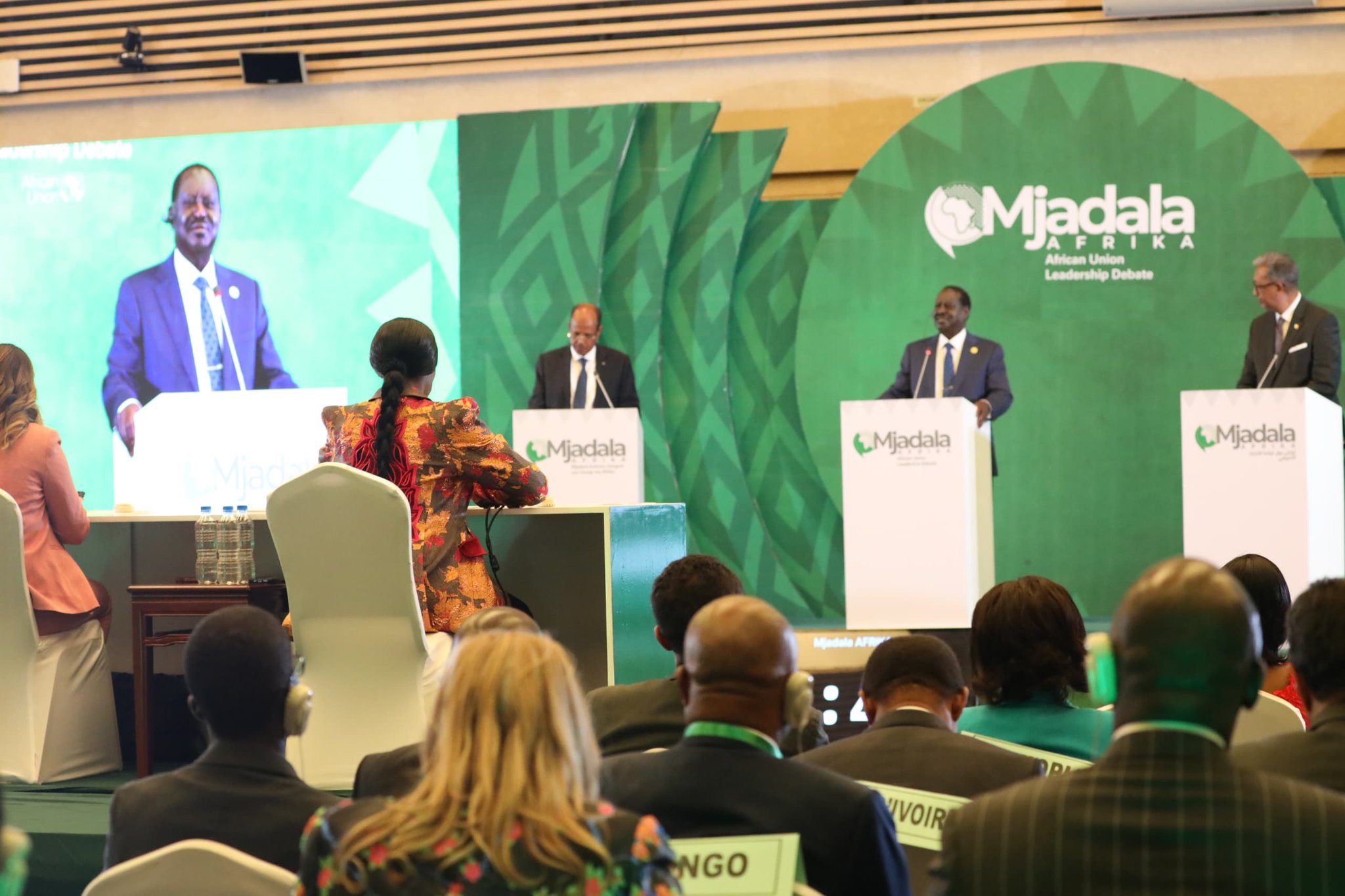
Insights from Mjadala Afrika on China’s role in Africa » Capital News
The recently held Mjadala Afrika debate in Addis Ababa offered an inspiring glimpse into the future of African Union (AU) leadership. Candidates vying for the African Union Commission (AUC) Chairperson position outlined ambitious visions to address the continent’s opportunities and challenges. Among the key themes discussed were Africa’s growing relationship with China and the importance of adopting innovative benchmarking practices and cooperation strategies for sustainable progress.
China’s transformative role in Africa’s development was a prominent focus during the debate. As one of the continent’s most engaged economic partners, China has played a significant role in funding critical infrastructure projects, ranging from expansive rail networks to cutting-edge energy plants. The Belt and Road Initiative (BRI), introduced in 2013, has channelled billions of dollars into African economies, facilitating growth and improving regional connectivity. Notable projects include the $4 billion Addis Ababa-Djibouti Railway, which has significantly boosted trade and mobility in East Africa.
The candidates—Raila Odinga of Kenya, Mahmoud Ali Youssouf of Djibouti, and Richard Randriamandrato of Madagascar—expressed optimism about the potential of Africa-China partnerships. They acknowledged that these collaborations have spurred technological advancement and economic expansion across many African states. However, the candidates agreed on the importance of ensuring these partnerships remain balanced and aligned with Africa’s long-term development objectives. This forward-looking perspective aims to maximise mutual benefits while safeguarding Africa’s financial stability and autonomy.
During the debate, Raila Odinga underscored the importance of learning from successful global models to strengthen Africa’s institutions and governance structures. The European Union’s cohesion and trade mechanisms were highlighted as exemplary practices. For instance, the EU conducts over 60% of its trade internally, in stark contrast to Africa, where intra-continental trade accounted for only 16.6% of total trade in 2021, according to the African Export-Import Bank. Odinga’s emphasis on the African Continental Free Trade Area (AfCFTA) reflected his belief that fostering intra-African trade would unlock the continent’s economic potential and create more inclusive growth opportunities.
Another forward-thinking proposal came from Richard Randriamandrato, who advocated for integrating modern technology to enhance transparency and accountability within AU institutions. He recommended leveraging digital platforms to monitor and evaluate the progress of Agenda 2063, Africa’s transformative blueprint for the next few decades. Such technological advancements, he argued, would bolster trust among African citizens and partners, ultimately accelerating the implementation of key projects. Randriamandrato’s call for fiscal discipline and streamlined operations within the AU reflects a commitment to ensuring that every resource is utilised effectively to achieve the continent’s ambitious goals.
The conversation also touched on strengthening collaboration among African nations to achieve collective self-reliance. Mahmoud Ali Youssouf passionately advocated for removing barriers to intra-African trade, improving transport infrastructure, and enhancing digital connectivity. The AfCFTA, projected to increase intra-African trade by 52% by 2025, was hailed as a transformative initiative. The candidates agreed that its successful implementation could reduce external dependencies while creating a more interconnected and resilient African economy.
Beyond trade, the candidates emphasised the importance of addressing shared challenges such as climate change, health crises, and peacebuilding. Africa’s remarkable resilience in the face of climate adversity—despite contributing less than 4% of global greenhouse gas emissions—was celebrated as a testament to the continent’s innovation and determination. Youssouf proposed the establishment of a continent-wide research and innovation hub to develop tailored solutions for Africa’s unique environmental and socio-economic challenges. His vision aligns with ongoing AU efforts, such as the African Medicines Agency, aimed at strengthening the continent’s capacity to address health emergencies and enhance access to medical resources.
The Mjadala Afrika debate underscored a shared vision among the candidates: Africa’s bright future depends on fostering partnerships that promote innovation, equity, and mutual growth. China’s continued engagement in Africa will undoubtedly play a crucial role, but African leaders are poised to approach these partnerships with strategic foresight. The emphasis on adopting best practices from other regions and deepening intra-African collaboration highlights a commitment to achieving the goals outlined in Agenda 2063.
As the AU prepares to elect its next Chairperson in February 2025, the ideas and aspirations presented during the Mjadala Afrika debate provide a roadmap for the continent’s future. The next leader will bear the responsibility of transforming these proposals into actionable policies, paving the way for a more integrated, prosperous, and self-reliant Africa. Far from being a mere political discourse, the Mjadala Afrika debate was a beacon of hope, illuminating the boundless potential of African ingenuity and unity. Africa’s journey towards a brighter tomorrow has never been more promising.
About The Author